#hans jakob christoffel von grimmelshausen
Explore tagged Tumblr posts
Text
Hansdampf in allen Gassen
literally: Hans-Steam in every alley
an active, versatile and busy person, a Jack of all trades (with a rather negative connotation)
Origin: The phrase may have come from the fresh cake that was carried home steaming on St. John's Day after being baked in the bakery. The phrase Hans in allen Gassen appears in literature in the 1667 novel The Adventurous Simplicissimus by Hans Jakob Christoffel von Grimmelshausen (Book 2, Chapter 7). The extended expression Hans Dampf in allen Gassen was finally made widely known through the story of the same name by the German writer and Swiss citizen Heinrich Zschokke (1771-1848) from 1814. The main character in it is "Hans, the son of Mayor Peter Dampf", who combines the above-mentioned characteristics. Lutz Röhrich also writes that Hans Dampf was a real, well-known personality in Gotha in the 19th century.
17 notes
·
View notes
Text
Deutschribing Germany
Literature
Middle Ages (5th-15th centuries)
Medieval German literature can be divided into two periods: Old High German literature (8th-11th centuries) and Middle High German literature (12th-14th centuries). The only surviving works from the first period are the Hildebrandslied (Lay of Hildebrand), which is the earliest poetic text in German and tells of the tragic encounter in battle between a father and a son, and Muspilli, which deals with the fate of the soul after death and at the Last Judgment.
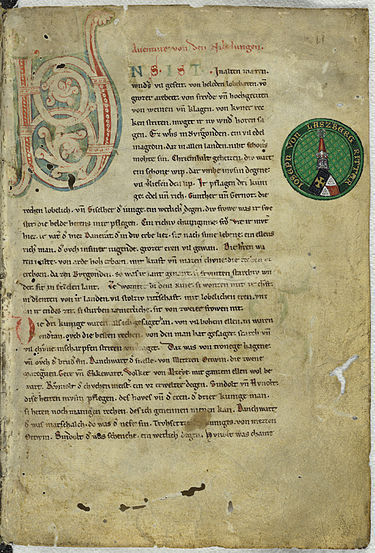
Middle High German literature saw a 60-year golden age known as mittelhochdeutsche Blütezeit, in which lyric poetry in the form of Minnesang—the German version of courtly love—blossomed thanks to poets such as Walther von der Vogelweide and Wolfram von Eschenbach. Another important genre during this time was epic poetry, of which the most famous example is the Nibelungenlied (The Song of the Nibelungs), which narrates the story of prince Siegfried and princess Kriemhild, among other characters.
Renaissance (15th-16th centuries)
Early New High German literature includes works such as Der Ring (The Ring) by Heinrich Wittenwiler, a 9,699-line satirical poem where each line is marked with red or green ink depending on the seriousness of the material, and Das Narrenschiff (Ship of Fools) by Sebastian Brant, a satirical allegory that contains the ship of fools trope.
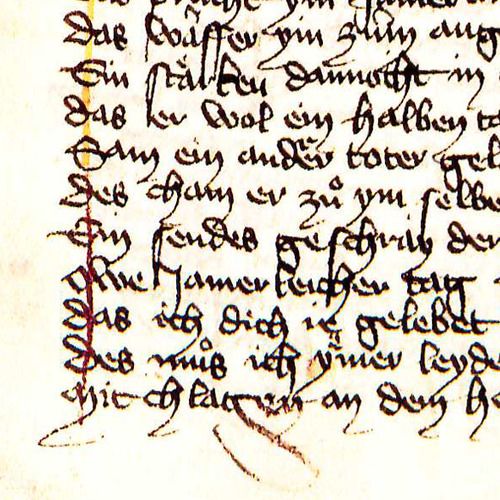
Other important authors are satirist and poet Thomas Murner, humanist Sebastian Franck, and poets Johannes von Tepl and Oswald von Wolkenstein.
Baroque (16th-17th centuries)
The Baroque period is characterized by works that reflected the experiences of the Thirty Years’ War and tragedies (Trauerspiele) on Classical themes, the latter were written by authors such as Andreas Gryphius and Daniel Caspar von Lohenstein. The most famous work is Der abenteuerliche Simplicissimus (Simplicius Simplicissimus) by Hans Jakob Christoffel von Grimmelshausen, a picaresque novel that narrates the adventures of the naïve Simplicissimus.

Enlightenment (17th-18th centuries)
The most important writers of the Enlightenment are Christian Felix Weiße, Christoph Martin Wieland, Gotthold Ephraim Lessing, and Johann Gottfried Herder.

The Age of Reason saw the emergence of two literary movements: Empfindsamkeit (sentimental style) and Sturm und Drang (storm and stress). The first one intended to express true and natural feelings and featured sudden mood changes. The latter movement was characterized by individual subjectivity and extremes of emotion in response to the rationalism imposed by the Enlightenment.
Weimar Classicism (18th-19th centuries)
The main drivers behind Weimar Classicism, which synthesized ideas from Classicism, the Enlightenment, and Romanticism, were Johann Christoph Friedrich von Schiller, and Johann Wolfgang von Goethe.
During this period, Schiller published Die Bürgschaft (The Pledge), a ballad based on the legend of Damon and Pythias found in the Latin Fabulae, and Don Karlos (Don Carlos), a historical tragedy about Carlos, Prince of Asturias, while Goethe wrote Egmont, a play heavily influenced by Shakespearean tragedy, and Faust, a tragic play in which the main character sells his soul to the devil that is considered the greatest work of German literature.
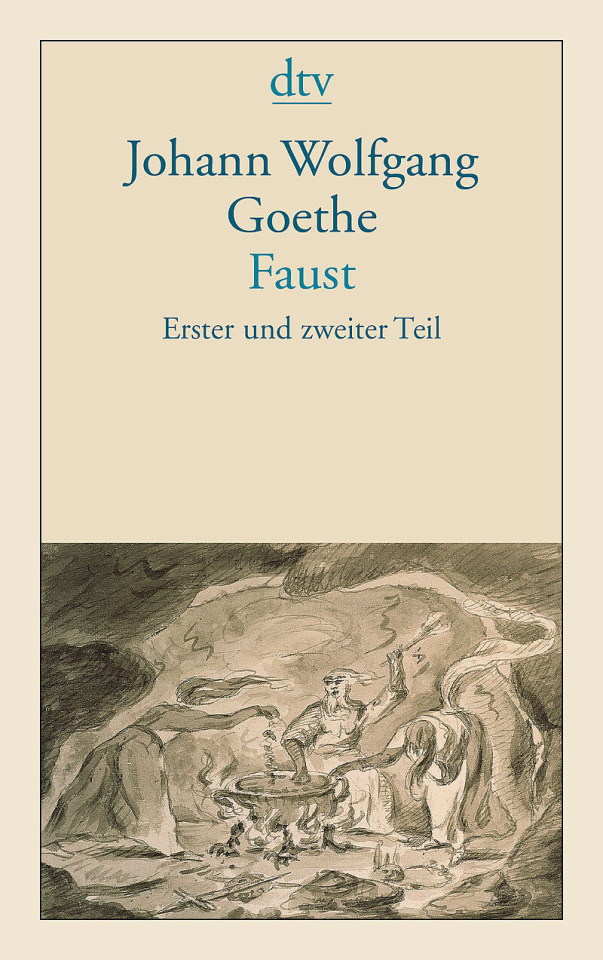
Romanticism (18th-19th centuries)
Important Romantic writers include E. T. A. Hoffmann, author of Der Sandmann (The Sandman), a short story based on the mythical character of said name that puts people to sleep by sprinkling sand on their eyes; Heinrich von Kleist, who wrote Das Kätchen von Heilbronn (The Little Catherine of Heilbronn), a drama set in Swabia in the Middle Ages; Joseph Freiherr von Eichendorff, author of Das Marmorbild (The Marble Statue), a novella about a man who struggles to choose between piety and a world of art, and Novalis, author of Hymnen an die Nacht (Hymns to the Night), a collection of six poems.
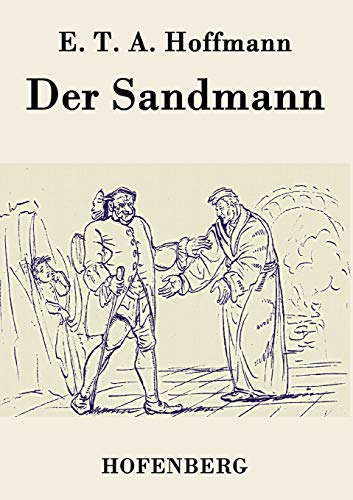
Folk tales collected by the Brothers Grimm became very popular during the Romantic period, as they represented a pure form of national literature and culture.
Biedermeier and Young Germany (19th century)
The Biedermeier period contrasts with the Romantic era and is best exemplified by poets Adelbert von Chamisso, Annette von Droste-Hülshoff, and Wilhelm Müller.
Young Germany was a youth movement whose main proponents were Karl Gutzkow, Ludolf Wienbarg, and Theodor Mundt.
Realism and Naturalism (19th century)
The most representatives realist authors are Gustav Freytag, Theodor Fontane, and Theodor Storm, while Gerhart Hauptmann was the most important naturalist writer.
Weimar literature (20th century)
During the Weimar Republic, writers such as Erich Maria Remarque, Heinrich Mann, and Thomas Mann presented a bleak look at the world and the failure of politics and society.

Expressionism (20th century)
As a modernist movement, Expressionism presented the world solely from a subjective perspective, distorting it for emotional effect. Famous authors include novelists Alfred Döblin and Franz Kafka, playwrights Ernst Toller and Georg Kaiser, and poets August Stramm and Else Lasker-Schüler.

Neue Sachlichkeit (20th century)
Neue Sachlichkeit (New Objectivity) arose as a reaction against expressionism and was characterized by its political perspective on reality and portrayal of dystopias in an emotionless reporting style, showing cynicism about humanity. Authors associated with this movement include Erich Kästner, Hans Fallada, and Irmgard Keun.
Nazi Germany (1933-1945)
During the Nazi regime, some authors went into exile, while others submitted to censorship. The former, who either were of Jewish ancestry or opposed the regime for political reasons, include writers Alice Rühle-Gerstel and Anna Seghers, playwright Bertolt Brecht, and poet and novelist Hermann Hesse/Emil Sinclair.

Those who stayed and engaged in inner emigration include writer Friedrich Reck-Malleczewen, poet and essayist Gottfried Benn, writer Hans Blüher, and poet and novelist Ricarda Huch.
Post-war literature (20th century)
The most famous authors in West Germany were Edgar Hilsenrath, Günter Grass, Heinrich Böll, and Group 47, a group of participants in writers’ meetings invited by Hans Werner Richter.
East German writers include Christa Wolf, Heiner Müller, Reiner Kunze, and Sarah Kirsch.

Contemporary literature (21st century)
Fantasy and science fiction authors include Andreas Eschbach, Frank Schätzing, and Wolfgang Hohlbein. Some of the most important poets are Aldona Gustas, Hans Magnus Enzensberger, and Jürgen Becker. Thriller is best represented by Ingrid Noll. Fiction novelists include Herta Müller, Siegfried Lenz, and Wilhelm Genazino.
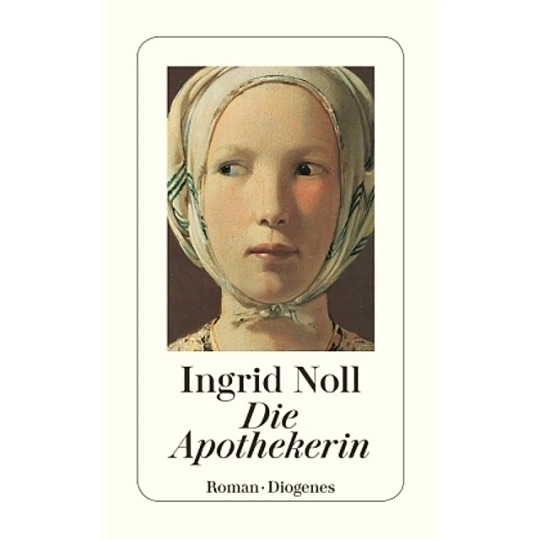
21 notes
·
View notes
Text
Der Dichter Hans Jakob Christoffel von Grimmelshausen schrieb 1669 in seinem "abenteuerlichen Simplicissimus Teutsch" folgende Zeilen "Gut Ding will Weile haben und vortreffliche Sachen werden ohne große Mühe und Arbeit nicht erworben"
the origin of „good things take time“
2 notes
·
View notes
Text
The modern German novel begins with The Adventures of Simplicius Simplicissimus (Der abenteuerliche Simplicissimus Teutsch, 1668) by Hans Grimmelshausen (1622?–76). One of the greatest novels of the 17th century, this 5-part, 400-page book is a boisterous Oktoberfest of genres bumping bellies: bildungsroman, picaresque, allegory, (anti)war novel, hagiography, fantastic voyage, romance, ghost story, sermon, and utopian novel. Referring to the frontispiece depicting a leering satyr/phoenix/bird/fish creature pointing at a book, one German critic admitted “the history of literary forms stands helpless before such a Tragelaph.”64 Initially, it resembles a picaresque novel, especially Alemán’s Guzman of Alfarache, which had been adapted into German by Aegidius Albertinus in 1615. Beginning about halfway through the Thirty Years’ War (1618–48), the narrator explains how he was raised nameless and uneducated among peasants until the marauding Imperial army looted his village when he was 12 or 13; he escapes into the nearby forest and is taken under the wing of a religious hermit who names him Simplicius because of his ignorance—he’s never seen a horse, and assumes soldiers riding them are a centaurlike hybrid of man and wolf—and brainwashes him with Christianity before allowing him to read more books borrowed from the local pastor. After the hermit dies, Simplicius returns to the world at war and yo-yos from one camp to another; treated like a fool, he becomes a professional jester until he can work his way up the ranks. He becomes a marauding prankster known as the Hunter of Soest, and on one occasion discovers an abandoned treasure in a haunted house, which seems to ensure his fortune. Knowing he’s betraying his Christian upbringing but powerless to resist, Simplicius then accompanies a young nobleman to Paris, where he becomes an actor and a gigolo, the beginning of a downward moral spiral that takes him back penniless to Germany, where he scrapes by as a traveling quack until he’s forced back into the army. Determined to settle down, he marries a country lass (who turns into a drunk), reunites with his “father” (who tells Simplicius he is actually the son of the hermit who raised him, a Scottish nobleman who abandoned the world in disgust), travels some more (Russia and Asia) before returning home disillusioned with everything, and becomes a hermit—choosing the life that had been forced upon him as a frightened boy. So it seems the entire novel has been a sermon against unchristian behavior, and a religious call for renunciation of the sinful world.
But Grimmelshausen complicates this picaresque pilgrim’s progress in many intriguing ways. On the one hand, the novel is graphically realistic, much more so than spiritually oriented works are. The attack on young Simplicius’s village is described in sickening detail: the soldiers ransack and torch everything, torture the peasants, and rape the women. Later, peasants capture a soldier, cut off his nose, and force him to lick their assholes before they bury him alive in a barrel; when other soldiers capture the cleansed peasants, “They bound their hands and feet together round a fallen tree in such a way that their backsides (if you will forgive me again) were sticking up nicely in the air. Then they pulled down their trousers, took several yards of fuse, tied knots in it and ran it up and down in their arses to such effect that the blood came pouring out. The peasants screamed pitifully, but the soldiers were enjoying it and did not stop their sawing until they were through the skin and flesh and down to the bone.”65 Young Grimmelshausen was an eyewitness to such atrocities—the first third of the novel is somewhat autobiographical; his handling of a child’s POV is superb—and his willingness to report what he saw so unflinchingly makes Simplicissimus a primary source for historians of the Thirty Years’ War. (You’ll recall the Spanish Estebanillo González is also set during that conflict and captures some of the chaos of war, but Grimmelshausen focuses on the civilian population.)
Such language also makes the novel a primary document in the rise of realism in fiction; not since Thomas Nashe had any novelist dared to describe the aftermath of battle in such gruesome terms as he uses: “there were heads that had lost the bodies they belonged to and bodies lacking heads; some had their entrails hanging out in sickening fashion, others their skull smashed and the brain spattered over the ground; . . . there were shot-off arms with the fingers still moving, as if they wanted to get back into the fighting, . . .” (2.27). The dialogue is equally realistic: “Pox on you, brother, are you still alive?” one soldier greets another. “By the holy fuckrament, the Devil looks after his own!” (1.26). As a licensed fool, Simplicius doesn’t mince words when asked to describe a fashionable visitor: “This lady has hair as yellow as baby shit and the parting is as white and as straight as if she had been hit on the scalp with a curry-comb. And her hair is in such neat rolls it looks like hollow pipes, or as if she had a pound of candles or a dozen sausages hanging down each side. And oh, look at her lovely smooth forehead, is it not more beautifully curved than a fat buttock and whiter than a dead man’s skull which has been hanging out in the wind and rain for years?” (2.9). Simplicius often embarrasses himself by farting noisily; people vomit, shit, swear, scratch at lice and fleas. There’s sex and some nudity: sailing on the Danube for Vienna, Simplicius “had eyes for nothing but the women who answered the calls from the boats with literal rather than verbal bare-arsed cheek” (5.3).66 The point is religious writers don’t write like this—nowhere in Bunyan’s Pilgrim’s Progress does a farmboy tell a dairymaid “that she could kiss his arse and go fuck her mammy in the bargain” (3.23)—which calls into question the ostensibly religious orientation of the novel. Something else is afoot.
Though highly realistic, more so than most pre-20th-century novels, Simplicissimus is, on the other hand, highly unrealistic and brazenly supernatural. Grimmelshausen’s novel often reads like a Grimms’ fairy tale, for Simplicius lives in a demon-haunted world where people still cast spells, foretell the future, and consort with devils. When he leaves the forest for the town, some citizens “thought I was a spectre, a ghost or some such phenomenon” (1.19)—phenomena as real to them as the butcher or the baker. In book 2, Simplicius is foraging at night and sneaks into a farmhouse, where he spies a few people who “had a sulphurous blue lamp on the bench by the light of which they were greasing sticks, brooms, pitchforks, stools and benches. Then, one after the other, they flew out of the window on them.” Puzzled, he sits on one of the benches and instantly shoots out the window and lands about 150 miles northeast to witness a witches’ dance, described with Boschean extravagance. Invited to join the dance, “I cried out loud to God, at which the whole crew vanished” (2.17). Simplicius insists this actually happened, and wasn’t a dream; citing similar stories from reputable scholars, including the story of Faust, he dares the reader to disbelieve him: “if you don’t believe it, you will have to think up some other way in which I went in such short time from Hersfeld or Fulda (I still don’t know where I was, wandering round in the forest) to the vicinity of Magdeburg” (2.18). There he is taken into a regiment that includes a prevost-sergeant who “was a true sorcerer and black magician who knew a spell for finding out thieves and another to make not only himself as bullet-proof as steel, but others too.” To find a thief, “the sorcerer muttered a few words and puppies started to jump out of people’s pockets, sleeves, boots, flies and any other openings in their dress, one, two, three or more at a time” (2.22). A little later, Simplicius invents a pocket-sized instrument that enables him to hear things taking place miles away, and again taunts the reader: “However, I am not surprised if people do not believe what I have just written” (3.1). The treasure he discovers is guarded by a “ghost or wraith” (3.12), which is not a product of his imagination, nor is the demon who speaks to him from inside a man undergoing exorcism (5.2). Near the end is the greatest test of the reader’s incredulity: tossing some stones into the “enchanted” Mummelsee, “a supposedly bottomless lake” (5.10)—a real lake in the Black Forest, but now known to be only 55 feet deep—some sylphs come to the surface, give him a magic jewel that enables him to breathe underwater, then take him to the center of the earth for a 16-page tour of their subterranean world and discuss their place in the Christian scheme of things.67
All this takes place on the “factual” plane of the novel, and doesn’t include numerous instances where people are mistaken for devils, or Simplicius’s allegorical dream of the military establishment as a tree (which allows Grimmelshausen to criticize further the suffering inflicting upon civilians) “with Mars, the God of War, on the top, and covering the whole of Europe with its branches” (1.18). One chapter is entitled “How Simplicius Was Dragged Down into Hell by Four Devils and Treated to Spanish Wine” (2.5), followed by “How Simplicius Went to Heaven and Was Turned into a Calf” (2.6), but these are merely pranks soldiers play on the naïve lad. Later he meets a madman who calls himself Jupiter, whom Simplicius plays along with by referring himself to Ganymede or Mercury, and layered on top of other references to classical mythology and German folklore is an elaborate set of references to Chaldean astrology. It’s tempting to call this magic realism were it not closer to the aesthetics of the medieval morality play, where figures representing devils or the sun shared the same stage as mortals. Christianity is part and parcel of this magical/medieval world: throughout the novel, saints and angels are evoked in the same breath as figures from myth and folklore, supernatural events are defended with citations of similar events in the Bible, and Christian theology is indistinguishable from the world of myth and magic. If you believe in the miracles in the Bible, the novel implies, then you’re no different from those who believe witches ride broomsticks and sorcerers cause puppies to magically crawl out of your pocket. As in Don Quixote, there is a clash between old-world and new-world weltanschauungs, and by the end of the novel, Christianity has been so thoroughly contaminated by its association with outdated mythology that Simplicius’s quixotic decision to renounce the world at age 33 and become a Christian hermit can only be regarded as the act of a simpleton. The novel encourages figurative detachment from the world, not literal.
Grimmelshausen certainly didn’t drop out to play the holy fool: he managed estates, ran several inns, was the mayor of a small town, had 10 kids, and wrote more than 20 books. He converted from Protestantism to Catholicism when younger (to help his careers, it’s been suggested), but he knew the only real magic is the act of artistic creation. There’s a lovely passage near the end of book 1 in which an officer’s secretary praises writing as a way to make a living; Simplicius thinks he’s talking about magic (and is reminded of “Fortunatus’s inexhaustible purse”), but Grimmelshausen is also praising the novelist’s art of creating something from nothing:
I once criticised him for his dirty inkwell but he replied that it was the best thing in his whole room for he could draw up out of it anything he wanted: fine gold ducats, fine clothes, in short all his possessions had been fished out of his inkwell one by one. I refused to believe that such magnificent things could be obtained from such a paltry container. He replied that it was the spiritus paperi, as he called the ink, that did it, and that an inkwell was called a well because you could draw up all sorts of things out of it. (1.27)
Out of Grimmelshausen’s dirty inkwell came this devilishly clever satire on 17th-century society, a world “so full of foolishness that no one takes any notice or laughs at it anymore,” as Simplicius notes (3.17), encouraging him to “castigate all follies and censure all vanities” (2.10). Simplicissimus begins like a picaresque bildungsroman but opens up into a Menippean satire, a blitzkrieg against pretension, hypocrisy, superstition, and especially the alleged nobility of war. There’s no bullshit here about dulce et decorum est pro patria mori, a con kings and politicians have been using to recruit cannon-fodder ever since Horace penned that piece of propaganda. The Thirty Years’ War was essentially a family squabble between the Hapsburgs and the Bourbons for territorial control over Europe (with some Protestant vs. Catholic window-dressing), about as noble as a mob turf war, and though Grimmelshausen sarcastically notes war is good for business (5.5), he rubs his reader’s face in its barbaric nature with a force that wouldn’t be felt again until the antiwar novels of the 20th century. As Simplicius fools his way through war-torn, phantasmagoric Germany, I was remind of Slothrop in Gravity’s Rainbow; Grimmelshausen even indulges in some Pynchonesque personification: on one of his foraging expeditions, Simplicius sees “a sight for sore eyes or, rather, empty bellies: hanging up in the chimney were hams, sausages and sides of bacon. They seemed to be smiling at me, so I gave them a come-hither look, wishing they would come and join my comrades in the woods, but in vain; the hard-hearted things ignored me and stayed hanging there” (2.31). Simplicissimus belongs to the same insubordinate platoon as The Good Soldier Švejk, The Tin Drum, and Catch-22.
Though Grimmelshausen drew upon personal experiences for the early parts of the novel, he drew mostly upon his extensive reading. Scholars have shown that more than 150 books went into the making of this erudite novel, ranging from classical authors and the medieval Parzival to the 6-page passage from Antonio de Guevara’s 16th-century theological tract that concludes book 5. A German translation of Charles Sorel’s iconoclastic antinovel Francion (see pp. 182–86 below) was a major inspiration, but Grimmelshausen also drew upon Italian novellas and German jestbooks (like Till Eulenspiegel), encyclopedias and almanacs, and manuals on witchcraft like Johann Wier’s De Præstigiis dæmonium (2.8). A battle scene that sounds like an eyewitness report actually comes from a German translation of Sidney’s Arcadia (which should give military historians pause). On one occasion, Simplicius visits a pastor and finds him “reading my Chaste Joseph” (3.19)—a biblical novel Grimmelshausen published in 1666, though it’s only 1639 at this point! That’s so obviously an anachronism that it has to be deliberate, another taunting call for the suspension of disbelief like Simplicius’s magical bench ride and his sylph-escorted journey to the center of the earth. It’s all one to “the old inkslinger” (2.4).
Cervantes waited 10 years to publish a sequel to Don Quixote, but Grimmelshausen jumped on the unexpected success of Simplicissimus. When the 5-book novel was reprinted in 1669, he added a 6th book simply entitled Continuation (Continuatio), though scholars are divided on whether this forms an organic whole with the previous part, or is the first of several sequels Grimmelshausen published over the next few years.
Like most hastily written sequels, the Continuation isn’t very good. Picking up where book 5 left off, Simplicius’s solitary life as a hermit seems to be driving him crazy, for first he recounts a long, allegorical dream that starts in hell with Lucifer gnashing his teeth at the declaration of peace that ended the Thirty Years’ War, which morphs into a didactic tale of a rich young Englishman who ruins himself through conspicuous consumption. Our hairy hermit then encounters a statue that comes to life, and—after Simplicius decides to hit the road as a pilgrim—he gets into an argument with some toilet paper, who delivers a long economic history of its many metamorphoses from seed to paper (a remarkable set-piece that again brings Pynchon to mind). Mistaken for the Wandering Jew, spooked by ghosts, Simplicius has further bizarre adventures as he travels to Egypt, then is shipwrecked on a deserted island off the coast of Australia, where he leads a Robinson Crusoe-type existence—this section was based on the popular English novelette by Henry Neville, The Isle of Pines (1668)—and there he writes the entire Simplicissimus novel on palm leaves. Refusing rescue by a Dutch sea captain, Simplicius intends to live out the rest of his pious life on his island hideaway, “an example of change and a mirror of the inconstancy of human life.”68 Although the book offers further displays of the author’s outlandish erudition, it’s too didactic, too medieval.
Grimmelshausen returns to form in The Life of Courage (Die Landstörtzerin Courasche, 1670).69 Near the end of Simplicissimus, our protagonist had boasted of seducing and dumping a beatiful lady, a “man-trap” whose “easy virtue soon disgusted him” (5.6); nine months later, she leaves a baby on his doorstep, who Simplicius reluctantly makes his son and heir. Audaciously blurring the distinction between fiction and reality, Grimmelshausen states in a headnote that this unnamed woman read Simplicissimus and was so insulted at her portrayal therein that she decided to avenge herself by telling the story of her life, revealing that the woman he took for an aristocrat was actually a promiscuous adventuress infected with syphilis—which raises an intriguing possibility: Did Simplicius contract the disease from her? Untreated, it can cause insanity, which would explain the underwater sylphic adventure later in book 5 and the talking toilet paper. Indeed, the entire bizarre Continuation can be read as a neurosyphilitic hallucination. If nothing else, it stinks up the odor of sanctity with which Simplicissimus ends.
Just as the Continuation anticipates Robinson Crusoe, this short novel anticipates Defoe’s Moll Flanders, but with no apology at the end for the life she’s led. (Grimmelshausen, however, tacks on a homiletic warning against following her example.) Inspired by a German translation of Lopez de Úbeda’s Justina, Grimmelshausen backtracks to the very beginning of the Thirty Years’ War. Born in Bohemia, 13-year-old Libuschka disguises herself as a boy to avoid rape from invading soldiers and joins the army: “I made a great effort to get rid of all my woman’s habits and acquire man’s. I took great pains to learn to swear like a trooper and drink like a fish . . . so that no one should suspect there was something I had not been endowed with at birth” (2). When it’s revealed during a fight she lacks that certain something, she defiantly calls her vulva Courage, which becomes her girl-power nom de guerre in her fight against male prejudice as well as opposing armies.70 Over the next dozen years, she is repeatedly married to soldiers, repeatedly raped by other other soldiers, then becomes a prostitute, then a black marketeer, doing whatever it takes to survive the war, and marrying whoever promises shelter from the storm. (Through no fault of her own, her husbands usually perish before their first anniversary.) She’s smart, as courageous as her name implies, and fiercely independent; she doesn’t really descend into criminal behavior until later in life, when she joins a band of Gypsies. And that child she left on Simplicius’s doorstep? Not hers, but her slutty maid’s. Hell hath no fury like a woman scorned, and Courage takes self-incriminating delight in telling Simplex (as she calls him) how wrong he was about everything.
Like Simplicissimus, Courage is graphically realistic but includes a few magical elements. The Spanish Justina tried to dodge sexual encounters, but Courage welcomes them: she’s a novelty in novels of this period, a sexually active woman who doesn’t feel guilty about scratching her itch (as puts it). While we have to remember that a man is writing this, Grimmelshausen was a worldly one and knew that women have sexual desires too, which you wouldn’t guess from most novels published before the 20th century. Like Simplicius, Courage occasionally reads courtly romance novels, but only to pick up “pretty turns of phrase from” for the purposes of seduction (5; cf. Simplicissimus 3.18: “these books taught me how to lure the female sex”). Rebelling against the polite romance tradition, Grimmelshausen opposes his hard-core realism to their unrealistic fantasies; like his model Charles Sorel, he was out to destroy the mainstream novel, and Courage is an earthy and bracing alternative to most 17th-century fiction.
One of Courage’s longer-term relationships was with a lackey/paramour she nicknamed Tearaway, from the time she told him, “Tear yourself away from that cart and go and fetch the dappled grey from the grazing” (16). After she dumped him for drunkenness and domestic violence, this rascal became one of Simplicius’s gang during his Hunter of Soest period. He tells his story in Tearaway (Der seltzame Springinsfeld, 1670), which begins when the young scribe Courage had hired to write down her memoir runs into Simplicius, lately returned from Australia, and his old servant Tearaway at an inn.71 The scribe tells them what Courage dictated to him—Simplicius interrupts to admit he was also banging Courage’s maid, so that baby is his son after all—and also of her life with the Gypsies. (Grimmelshausen may be the first to write about them in fiction.) We learn that Simplicius, as pious as ever, is annoyed that readers are treating his Simplicissimus merely as a jestbook like Till Eulenspiegel instead of the Christian allegory he intended. Incongruously, he is now making a living as a traveling salesman peddling an elixir that improves wine, using a magic book as part of his spiel—another occasion Grimmelshausen uses, like the dirty inkwell, for a tribute to the power of imaginative writing—and after nine chapters of metafictional scene-setting, Tearaway tells how he spent the war. Like much of Simplicissimus, Tearaway is a grim, grunt’s-eye view of war, where greed for booty trumps patriotic duty, and which brings out the worst in everyone. Tearaway admits “Soldiers are there to persecute the peasants and any that leave them in peace aren’t doing their job properly,” but also notes “some peasants were worse than the good soldiers themselves. They not only murder soldiers, innocent and guilty, whenever they managed to get hold of them, when they had the chance, they stole from their neighbours, even from their own friends and relations” (13). This section is sketchy, obviously worked up not from firsthand experience but from the same war chronicle Grimmelshausen used for Courage, Eberhard von Wassenberg’s Erneuerter Teutscher Florus (1647). After the war is over, Tearaway marries a widow and becomes a crooked innkeeper, abandons both, then marries a hurdy-gurdy player and scrapes out a living accompanying her on the fiddle as wandering musicians. This colorful, realistic account of tramping morphs into a fairy tale in which his wife discovers a magical bird’s nest that confers invisibility on its owner; Tearaway’s too cowardly to use it for gain—she isn’t, and winds up being burned as a witch as a result—and the tatterdemalion is still playing for pfennigs when he runs in to his old master. Simplicius tries to recall him to Christian principles, which Tearaway initially dismisses as “a load of monkish tripe” (27), though he repents just before he dies.
“The Miraculous Bird’s Nest” (Das wunderbarliche Vogelnest, 1672 [part 1] and 1675 [part 2]) is the title of the last two sections of what Grimmelshausen eventually called the Simplician Cycle. In part 1, a do-gooder named Michael uses the cloaking device to obstruct various misdeeds while searching for an honorable way to make money; in part 2, an unnamed merchant, less scrupulous than Michael (and more like Tearaway’s wife), takes advantage of invisibility to commit various acts of greed, lust, and sorcery. The miraculous bird’s nest functions as a “lens through which the bearer perceives reality” (Negus, 124), another analog for one of fiction’s purposes. Simplicius’s son appears in one episode in part 1, but otherwise the 2-part novel is only thematically related to the preceding novels, emphasizing once again the inconstancy of fortune, the prevalence of evil, and the consequent necessity of adhering to Christian principles. Books 1 through 8 of the Simplician Cycle depicted a world at war, but in these final two books Grimmelshausen argues that the world at peace is just as dangerous. They sound mildly entertaining, but as they’ve not been translated, I can only direct the interested reader elsewhere for more on the conclusion to Grimmelshausen’s 10-part, 800-page meganovel.72
Unlike part 2 of Don Quixote, the second half of the Simplician Cycle isn’t as impressive as the first half (i.e., Simplicissimus), but that doesn’t prevent Grimmelshausen from occupying the same lofty position in early German literature, and his influence on later German writers is profound. He impressed Ludwig Tieck and other German Romantics, the Grimm brothers and Goethe, and his work played a patriotic part in the unification of Germany in the 19th century. Most major German novelists of the 20th century have paid tribute to him: Thomas Mann borrowed from his work for his Felix Krull and Doctor Faust, and in his introduction to a Swedish translation of Simplicissimus, he wrote: “It is the rarest kind of monument to life and literature, for it has survived almost three centuries and will survive many more. It is a story of the most basic kind of grandeur—gaudy, wild, raw, amusing, rollicking and ragged, boiling with life, on intimate terms with death and the devil—but in the end, contrite and fully tired of a world wasting itself in blood, pillage and lust, but immortal in the miserable splendor of its sins.”73 Hesse greatly admired Grimmelshausen, and from him Bertolt Brecht conceived the idea for his play Mother Courage and Her Children (1949). Grimmelshausen’s earthy, erudite, punning language was an inspirational starting point for Arno Schmidt’s even more outlandish diction. I implied earlier that the young Simplicius has something in common with Oskar Matzerath in Günter Grass’s Tin Drum (1959), and Grimmelshausen steals the show in Grass’s erudite critifiction The Meeting at Telgte (1979), an imaginary conference of several German authors in 1647, in which Grass affectionately roasts the old inkslinger:
In his green doublet and plumed hat he looked like something out of a storybook. . . . [After he] had offered his services in a long-winded speech well larded with tropes, Harsd��rffer took Dach aside. True, he said, the fellow prates like an itinerant astrologer—he had introduced himself to the assemblage as Jupiter’s favorite, whom, as they could see, Venus had punished in France—but he had wit, and was better read than his clowning might lead one to suspect. . . . His lies, said Harsdörffer, are as inspired as any romances; his eloquence reduces the very Jesuits to silence; not just the church fathers, but all the gods and their planets are at his fingertips; he is familiar with the seamy side of life, and wherever he goes, in Cologne, in Recklinghausen, in Soest, he knows his way about. . . . Hofmannswaldau stood dumbfounded; hadn’t the fellow just quoted a passage from Opitz’s translation of the Arcadia? . . . His words seemed as trustworthy as the sheen of the double row of buttons on his green doublet. (6–7)
In this novel Grimmelshausen is still in his mid-twenties, but someday, the narrator predicts, “he would let every foul smell out of the bag; a chronicler, he would bring back the long war as a word-butchery, let loose gruesome laughter, and give the [German] language license to be what it is: crude and soft-spoken, whole and stricken, here Frenchified, there melancolicky, but always drawn from the casks of life. Yes, he would write! By Jupiter, Mercury, and Apollo, he would!” (112–13).
#steven moore#the novel: an alternative history 1600-1800#hans jakob christoffel von grimmelshausen#simplicissimus#tom nashe#miguel de cervantes#bertolt brecht#arno schmidt
2 notes
·
View notes
Note
6, 24, 38, 86 for the book asks !! 💗
6 – a book with a pink cover
hmm, the russian cover of "tokyo decadence" by ryu murakami has a girl dressed in all pink on it! but tbh I can't remember any other 🤔
24 – a book on your nightstand
right now it's "simplicius simplicissimus" by hans jakob christoffel von grimmelshausen 😅
38 – your favorite series
novels about franck sharko by franck thilliez
86 – a book with an insane plot twist
I'd say that it's my own thriller that I'm writing at the moment 😂 but I can also mention "victoria bergmans svaghet" here too
thank you!! 💖
3 notes
·
View notes
Text
Another lovely antique book finding...just across the street! It's not everyday you stumble into something like this, especially when it's for free! Here we have a 1880 printing of the 17th century work, "Simplicius Simplicissimus" (Der abenteuerliche Simplicissimus) by Hans Jakob Christoffel von Grimmelshausen. It's considered to be the first adventure novel in the German language and Germany's first literary masterpiece.
The Pining Poet ©: "We are Dark Academia."
Go to www.thepiningpoet.com to find out how you can contribute to the first-ever Dark Academia digest! Submit your original content entries for Dark Academian writing/poetry/prose/style/fashion via our website. See you there...
#kamillealexandra #author #poet #prose #thepiningpoet #writing #poetry #poems #freeverse #writers #WritingCommunity #darkacademia #ejournal #darkacademiaaesthetic
#literaryquotes #literature #literaryjournal #poetrycommunity #quotes #novels #classicliterature #booklovers #antiqueshop #antique #antiquebook #antiquebooks #adventurestories #grimmelhausen #deutschland #germany




3 notes
·
View notes
Photo


Jean de La Fontaine - Fables 1668-1694
Hans Jakob Christoffel von Grimmelshausen - The Adventures of Simplicius Simplicissimus 1669
2 notes
·
View notes
Text
I’m currently reading two books
A House-Boat on the Styx by John Kendrick Bangs which is a fun little book and my short story “The Taming of Cerberus” is actually a sequel to this book, its a fun story where a bunch of historical figures and literary figures live on a House boat and have like a little club going on.
The Adventures of Simplicius Simplicissimus by Hans Jakob Christoffel von Grimmelshausen (Long name, long title rip) German author written during the 30 year war that plagued Germany in the mid-17th century. It’s interesting its just plucky farmer boy who has adventures, altho overtly detailed accounts of torture which makes me believe this is semi-autobiographical.
I feel like reading will be simpler once my Kindle I ordered arrives, should be here next week.
2 notes
·
View notes
Photo

Obwohl das Gedicht in der Barockzeit die beliebteste literarische Ausdrucksform war, wurden natürlich auch erzählende Texte verfasst, etwa Romane, Schwank, Satire oder Sprüche. Bekanntestes Werk ist hier der Schelmenroman Der Abentheuerliche Simplicissimus Teutsch von Hans Jakob Christoffel von Grimmelshausen aus dem Jahr 1668. Er gilt als der erste Abenteuerroman. Ansonsten gab es im Barock viel nicht-fiktionale oder Sachliteratur: Reisebeschreibungen, Predigten und journalistische wie wissenschaftliche Werke.
Bildquelle https://stock.adobe.com/de/images/book-frontispiece-simplicius-simplicissimus-der-abenteuerliche-simplicissimus-teutsch-picaresque-baroque-novel-written-in-1668-by-hans-jakob-christoffel-von-grimmelshausen/333521774?as_campaign=ftmigration2&as_channel=dpcft&as_campclass=brand&as_source=ft_web&as_camptype=acquisition&as_audience=users&as_content=closure_asset-detail-page
0 notes
Photo

The Adventures of Simplicius Simplicissimus (1668) Hans Jakob Christoffel Von Grimmelshausen (497 pages)
Considered the first great German novel and masterpiece, this was written about the Thirty Years’ War and it feels as if it took me close to 30 years to finish it (it only took five days, but that’s close to all I did). As far as picaresque novels go, this might just be my least favorite one (unless you count Dickens’ The Pickwick Papers, there are certainly fewer novels I like less than that one). Is there any better picaresque novel than Don Quixote (which came out almost sixty years prior to this)? I think not.
I must say, however, that the ending was quite perfect. I’d love to read that final chapter as a speech at someone’s funeral. That might blow some minds!
1 note
·
View note
Text
It has come to our attention that some millennials on Tumblr people don’t like 1st person narrative in fiction. We were quite baffled by the notion (”But... like... Song of Achilles is 1st person. And half of Bleak House. And Gone Girl!”). Immortality AU, of course, is 1st person, and so are the books on this list which we compiled off the top of our heads because they are immensely popular and/or personal faves:
British and Irish Classics:
Wuthering Heights by Emily Bronte
Jane Eyre by Charlotte Bronte
Villette by Charlotte Bronte
Tom Jones by Henry Fielding (the omniscient narrator narrates in the 1st person)
Treasure Island by Robert Louis Stevenson
all (?) of Sherlock Holmes by Arthur Conan Doyle
Great Expectations by Charles Dickens
half of Bleak House by Charles Dickens
Vendetta by Marie Corelli
Rebecca by Daphne du Maurier
The Murder of Roger Ackroyd by Agatha Christie
Murder at the Vicarage by Agatha Christie
as well as other Christie stories, including Poirot ones
loads of classic horror short stories
American Classics:
The Great Gatsby by F. Scott Fitzgerald
all or most of Edgar Allen Poe
Moby Dick by Herman Melville
To Kill a Mockingbird by Harper Lee
Huckleberry Finn by Mark Twain
Lolita by Vladimir Nabokov
Breakfast at Tiffany’s by Truman Capote
Other Classics:
Justine by the Marquis de Sade
Much of Pushkin’s work
La Dame aux Camélias by Alexandre Dumas, fils
Modern English-language novels
Gone Girl by Gillian Flynn
Song of Achilles by Madeline Miller
As Meat Loves Salt by Maria McCann
half of The Mists of Avalon by Marion Zimmer Bradley
also: some of Marion Zimmer Bradley’s short stories, most notably the one with the Lesbian Reveal
The Handmaid’s Tale by Margaret Atwood
half of House of Leaves by Mark Z. Danielewski
Mysterious Skin by Scott Heim
Exquisite Corpse by Poppy Z. Brite
The Hotel New Hampshire by John Irving
Fingersmith by Sarah Waters
Tipping the Velvet by Sarah Waters
Rivers of London by Ben Aaronovitch
High Fidelity by Nick Hornby
A Long Way Down by Nick Hornby
The Curious Incident of the Dog in the Night-Time by Mark Haddon
American Psycho by Bret Easton Ellis
Trainspotting by Irvine Welsh
The Goldfinch by Donna Tartt
The Sweetness at the Bottom of the Pie by Alan Bradley
Fight Club by Chuck Palahniuk
The Quiet American by Graham Greene
Modern non-English novels
The Tin Drum by Günter Grass
The Name of the Rose by Umberto Eco
Foucault’s Pendulum by Umberto Eco
A Heart So White by Javier Marias
ALL epistolary, memoir and diary-style novels:
Dracula by Bram Stoker
Les Liaisons dangereuses by Choderlos de Laclos
The Sorrows of Young Werther by Johann Wolfgang von Goethe
Fanny Hill by John Cleland
Memoirs of a Dutiful Daughter by Simone de Beauvoir
Just Kids by Patti Smith
Carrie by Stephen King
I, Claudius by Robert Graves
The Secret Diary of Adrian Mole, Aged 13¾ by Sue Townsend
The Diary of Bridget Jones by Helen Fielding
We Need To Talk About Kevin by Lionel Shriver
Memoirs of Hadrian by Marguerite Yourcenar
World War Z by Max Brooks
Meditations by Marcus Aurelius
half of Emily Climbs by Lucy Maud Montgomery
Memoirs of a Geisha by Arthur Golden
The Bell Jar by Sylvia Plath
Everything is Illuminated by Jonathan Safran Foer
Children’s Books:
How to Survive Summer Camp by Jacqueline Wilson
The Best Christmas Pageant Ever by Barbara Robinson
There’s also books that pass by English speakers because they’ve never been translated or never caught on, but are popular in other countries:
Der abenteuerliche Simplicissimus by Hans Jakob Christoffel von Grimmelshausen (the first novel in the German language)
Six Bullerby Children by Astrid Lindgren
Brothers Lionheart by Astrid Lindgren
Felidae by Akif Pirinçci (cat detective mysteries)
Der Rumpf by Akif Pirinçci (thriller from the PoV of a disabled mastermind)
Confessions of Felix Krull by Thomas Mann
Olfi Obermeier und der Ödipus by Christine Nöstlinger (coming-of-age story of a boy who grows up in a household ruled by women)
Konopielka by Edward Redliński
The Devil's Elixirs by E.T.A. Hoffmann
Aischa by Federica de Cesco (coming-of-age story of a Muslim immigrant girl in Paris)
Lélia by George Sand
Chronicler of the Winds by Henning Mankell
The Manuscript Found in Saragossa by Jan Potocki
#1st person narration#is great#between them your Authoresses read 99% of these books#many of them are all-time faves#what's the rationale behind disliking 1st person?#has it ever been explained?#or is it just an edgy thing that kids-these-days do?
114 notes
·
View notes
Video
youtube
Abenteuerliche Simplicissimus Teutsch Teil 1 | Hans Jakob Christoffel von Grimmelshausen | Action & Adventure Fiction, War & Military Fiction | Audiobook full unabridged | German | 1/7 Content of the video and Sections beginning time (clickable) - Chapters of the audiobook: please see First comments under this video. Der Abentheuerliche Simplicissimus Teutsch ist ein Schelmenroman von Hans Jakob Christoffel von Grimmelshausen, erschienen 1668. Er wird gemeinhin als das wichtigste Werk seiner Art im 17. Jahrhundert betrachtet. Ferner gilt er als der erste deutschsprachige Abenteuerroman mit stark autobiographischen Zügen, da er die Lebenswege von Autor und Held im Dreißigjährigen Krieg (1618–1648) teilweise zusammenführt, ohne sie freilich zur Deckungsgleichheit zu bringen. (Summary nach Wikipedia) Prooflisteners: Al-Kadi, Buechermaus, Rolf Kaiser, Hokuspokus This is a Librivox recording. If you want to volunteer please visit https://librivox.org/ by Priceless Audiobooks
0 notes
Text
We had to read Simplicius Simplicissimus (ger.: Der abenteuerliche Simplicissimus) from Hans Jakob Christoffel von Grimmelshausen. I don't remember a lot of it, but I do remember that non of us could stand it. Then again, we read it in 7th grade [we were all 12 - 13 year old kids] and some teachers said they wouldn't read it with a class that young so maybe we just didn't understand it? I don't know but so far I'm not planning on rereading that.
what books were you assigned to read in a class that you still hold a violent and bitter grudge against
for me it’s into the wild and the scarlet letter
119K notes
·
View notes
Text
Bildungsroman
Book Discussion Challenge, April 5
When I saw this prompt, I could only name two books I’d read that I thought qualified and I didn’t want to talk about either, so I went to the Wikipedia page to see what else was out there. Still don’t want to talk about any of them, but I thought a “read/TBR” list might be fun.
bolded = read italics = want to read
Precursors
Hayy ibn Yaqdhan, by Ibn Tufail (12th century)
Parzival, by Wolfram von Eschenbach (early 13th century)
Sir Gawain and the Green Knight (late 14th century)
Lazarillo de Tormes (1554)
17th century
Simplicius Simplicissimus, by Hans Jakob Christoffel von Grimmelshausen (1668)
The Adventures of Telemachus, by François Fénelon (1699)
18th century
The History of Tom Jones, a Foundling, by Henry Fielding (1749)
Candide, by Voltaire (1759)
The Life and Opinions of Tristram Shandy, Gentleman, by Laurence Sterne (1759)
Emile, or On Education, by Jean-Jacques Rousseau (1763)
Geschichte des Agathon, by Christoph Martin Wieland (1767)
Wilhelm Meister's Apprenticeship by Johann Wolfgang Goethe (1795–96)
19th century
Emma, by Jane Austen (1815)
The Red and The Black, by Stendhal (1830)
The Captain's Daughter, by Alexander Pushkin (1836)
Jane Eyre, by Charlotte Brontë (1847)[21]
Pendennis, by William Makepeace Thackeray (1848–1850)
David Copperfield, by Charles Dickens (1850)
Green Henry, by Gottfried Keller (1855)[22]
Great Expectations, by Charles Dickens (1861)
Sentimental Education, by Gustave Flaubert (1869)
The Adventures of Pinocchio, by Carlo Collodi (1883)
The Story of an African Farm, by Olive Schreiner (1883)
The Adventures of Huckleberry Finn, by Mark Twain (1884)
Pharaoh, by Bolesław Prus (1895)
What Maisie Knew, by Henry James (1897)
20th century
The Confusions of Young Törless, by Robert Musil (1906)
Martin Eden, by Jack London (1909)
The Book of Khalid, by Ameen Rihani (1911)
Le Grand Meaulnes, by Alain-Fournier (1913)
Sons and Lovers, by D. H. Lawrence (1913)
Of Human Bondage, by W. Somerset Maugham (1915)
A Portrait of the Artist as a Young Man, by James Joyce (1916)
Demian: The Story of Emil Sinclair's Youth by Hermann Hesse (1919)
Winesburg, Ohio by Sherwood Anderson (1919)
This Side of Paradise by F. Scott Fitzgerald (1920)
The Magic Mountain by Thomas Mann (1924)
Pather Panchali, by Bibhutibhushan Bandopadhyay (1929)
Gone with the Wind, by Margaret Mitchell (1936)
Their Eyes Were Watching God by Zora Neale Hurston (1936)
Native Son by Richard Wright (1940)
A Tree Grows in Brooklyn by Betty Smith (1943)
The Green Years by A. J. Cronin (1944)
The Catcher in the Rye, by J. D. Salinger (1951)
The Voyage of the Dawn Treader (for plot character Eustace Scrubb) by C. S. Lewis (1952)
Invisible Man by Ralph Ellison (1952)
In the Castle of My Skin, by George Lamming (1953)
Goodbye, Columbus, by Philip Roth (1959)
A Separate Peace, by John Knowles (1959)
To Kill a Mockingbird, by Harper Lee (1960)
Dune, by Frank Herbert (1965)
The Outsiders, by S. E. Hinton (1967)
A Wizard of Earthsea, by Ursula K. Le Guin (1968)
I Know Why the Caged Bird Sings, by Maya Angelou (1969)
Bless Me, Ultima, by Rudolfo Anaya (1972)
The World According to Garp, by John Irving (1978)
The Discovery of Slowness, by Sten Nadolny (1983)
Bright Lights, Big City, by Jay McInerney (1984)
Ender's Game, by Orson Scott Card (1985)
The Cider House Rules, by John Irving (1985)
Oranges Are Not the Only Fruit, by Jeanette Winterson (1985)
Norwegian Wood, by Haruki Murakami (1987)
A Prayer For Owen Meany, by John Irving (1989)
Number the Stars, by Lois Lowry (1989)
Sophie's World, by Jostein Gaarder (1991)
English Music, by Peter Ackroyd (1992)
The Gods Laugh on Mondays, by Reza Khoshnazar (1995)
About a Boy, by Nick Hornby (1998)
The Perks of Being a Wallflower, by Stephen Chbosky (1999)
Persepolis, by Marjane Satrapi (2000)
21st century
The Secret Life of Bees, by Sue Monk Kidd (2002)
The Lovely Bones, by Alice Sebold (2002)
The Kite Runner, by Khaled Hosseini (2003)
The Fortress of Solitude, by Jonathan Lethem (2003)
Never Let Me Go, by Kazuo Ishiguro (2005)
Looking for Alaska, by John Green (2005)
Indecision, by Benjamin Kunkel (2005)
Black Swan Green, by David Mitchell (2006)
The Absolutely True Diary of a Part-Time Indian, by Sherman Alexie (2007)
Indignation, by Philip Roth (2008).
Submarine, by Joe Dunthorne (2008)
Breath, by Tim Winton (2008)
Paper Towns, by John Green (2008)
The Solitude of Prime Numbers, by Paolo Giordano (2008)
The Goldfinch, by Donna Tartt (2013)
Come and Take It, by Cody WIlson (2016)
So … I want to read more than I’ve read, for sure. What about you guys?
2 notes
·
View notes
Quote
Wie die Zeiten / so die Wort / und hinwiederum / wie die Wort so auch die Zeiten
Hans Jakob Christoffel von Grimmelshausen, Deß Weltberuffenen Simplicissimi Pralerey und Gepräng in seinem Teutschen Michel
2 notes
·
View notes
Link
LibriVox turns 15 this month! In all these years, we have achieved many goals. Here are some gems from our catalog that seemed very ambitious when LibriVox first started out. But today, with more than 14,200 completed projects, they are just a small part of a much bigger whole.
Speaking about “whole”, let’s start with a complete set. Already back in 2012, we completed all plays by William Shakespeare. Add to this selections of favourite monologues and scenes from his plays and his sonnets, and you will find most of the great bard’s output here.
We are not quite there yet with Mark Twain, who wrote a tremendous number of books, short stories and newspaper articles. Our reader John Greenman is dedicated to record everything Twain has ever written, so of course he did one of the seven versions of The Adventures of Huckleberry Finn as well.
Wait – seven versions of the same book? Yes! We call this “choice of voice” and it’s unique to LibriVox. Many of our books have 2, 3, … 7 versions, but the most popular one amongs our readers is A Christmas Carol by Charles Dickens, with 11 completed versions to date.
Thinking about this a bit more though, if you count single pieces in our many collections, there is even more “choice of voice”. Probably the most recorded poem on LibriVox is by Edgar Allen Poe. The Raven has 25 versions in a number of English collections and an additional 22 in this multilingual one.
Yes of course, LibriVox loves languages too! So far, our catalog contains projects in 100 languages. Not every one of these is a completed stand-alone project though, but more than 50 different languages can be found in our collection of Multilingual Recordings of the Universal Declaration of Human Rights.
This leads us to the book with the most translations in our catalog. It is a classic adventure story by Jules Verne, who is just as popular among our readers as Charles Dickens. His fantastic story 20,000 Miles under the Sea is available in the original French and as translations into English, German, Spanish, and Dutch.
Speaking of classics, LibriVox has a wide selection from many different countries. Don Quixote by Miguel de Cervantes Saavedra is a wonderful book from Spain, and we have it in the original Spanish, and in translations into English, Dutch (adaptation) and German (first book only).
Or are you a Francophone? Then you must know Les Miserables, the tragic story in five volumes by Victor Hugo. You can listen to it in the original French, as well as in translations into English, Dutch, and (almost completed) Spanish.
One book that was published in many versions and translations over the centuries is the Bible. While LibriVox has many versions of various books of the Bible, we have three completed versions: The Spanish Reina Valera Version, the King James Version, and the World English Bible, a solo recording that is 100 hours long!
Not even Leo Tolstoy’s epic War and Peace is that long! Listening to every one of the 17 volumes takes a mere 3 days, 22 hours, and 40 minutes, which, to be fair, is also very ambitious, if you’d want to do it in one go.
Not every ambitious project is necessarily very long. Sometimes, it’s the difficulty of the text that makes recording it a challenge. One of these texts is Der Abenteuerliche Simplicissimus Teutsch, a picaresque novel written in the 17th century by Hans Jakob Christoffel von Grimmelshausen.
Although the language is significantly more modern, James Joyce’s Ulysses is also considered notoriously complicated. Our first version (of two) dates back to the early days of LibriVox and was completed in 2007. It is rather experimental and some chapters were recorded in live meetings of LibriVox volunteers.
Since these live group recordings need quite a bit of planning, there are only very few in our catalog. However, in 2010, our Dutch members pulled it off and met in person for a special recording for our 5th anniversary. The result is Natuurlijke Historie voor de Jeugd by De Schoolmeester.
Italian author and winner of the Nobel Prize Luigi Pirandello also had a big plan: He wanted to write 365 novellas and publish them in 24 volumes. However, he died too early to see his goal completed, but still, 15 volumes of the Novelle per un anno were published, and 13 of them can be found here.
So many ambitions fulfilled – and so many still in progress! Among our ongoing multi-volume projects that are yet only partially completed are The National Geographic Magazine (first 10 years completed), Giorgio Vasari’s Lives of the Most Eminent Painters Sculptors and Architects (4 to go), and Library of the World’s Best Literature, Ancient and Modern (45 volumes in total).
For 15 years, we at LibriVox have been following our goal
To make all books in the public domain available, narrated by real people and distributed for free, in audio format on the internet.
And we will keep on doing just that! Together, we will make it happen! Thank you to all our volunteers who helped out over the years and whose smallest contribution brought us one step closer to reach our goal. If you want to be a part of this great project, you are certainly welcome to Volunteer for LibriVox.
On to the next 15 years!
via Libricox
0 notes